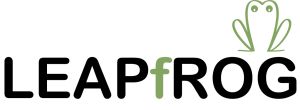PharmacoInformatics
Data-driven medication safety. We are dedicated to optimizing medication safety by leveraging information technology. Our primary focus is on patients with multiple chronic conditions and therefore taking multiple medications. Currently, there is limited knowledge available concerning medication safety in these patients. Consequently, these patients have a higher risk of medication-related harm and treatment failure.
To address this critical issue, we aim to:
- Provide reliable digital tools for Adverse Drug Events (ADEs) detection and registration on the individual patient level in hospital settings
- Supplement evidence from RCTs with real-world evidence about medication safety by reusing routinely collected data.
- Develop or optimize existing clinical decision support systems (rule-based or data-driven) for medication alerts.
- Develop and optimize ADE monitoring via ward-based/hospital-based ADE monitoring tools
Scientific projects

People with multimorbidity suffer from suboptimal pharmacotherapy due to insufficient knowledge to guide prescribing decisions. Leveraging routinely collected data in Electronic Health Records (EHRs) using machine learning (ML), have been widely advocated to close this knowledge gap and provide missing insights on safety and effectiveness of drugs. However, EHR data suffer from many quality issues. In addition, there are still significant limitations in the introduction of ML models to support in prescribing decisions, due to the lack of transparency in how model outputs are generated (the "black box” dilemma), and lack of logical reasoning (models not informed by causal domain knowledge).
Therefore, LEAPfROG aims for scientific breakthrough in ML application in healthcare by addressing the aforementioned limitation and creating a medication safety learning system. A system powered by novel ML-powered tools capable to provide trustworthy and explainable causal suggestions. The value of the ssystem will be demonstrated via clinically relevant and urgent use case of drug-induced kidney diseases (DIKD) in patients with chronic kidney disease (CKD). Patients with CKD are amongst the most complex and multimorbid. By providing missing insights on DIKD in patients with CKD via PIL, LEAPfROG will contribute to safer and more effective pharmacotherapy in these patients. Aiming to increase quality of life of patients with CKD and decrease healthcare costs related to medication harm
Timespan: 2022 - 2027
Research line: PharmacoInformatics
Staff: Joanna Klopotowska, Birgit Damoiseaux, Daniel Fernandez Ilaneza, Joris Lieverse, Izak Yasrebi de Kom
Website: LEAPfROG
This project focuses on improving medication safety for patients in the Intensive Care Unit (ICU). We aim to reduce high-risk medication interactions and medication-related kidney complications more efficiently. We seek to achieve this by establishing a strong IT-foundation for a learning medication safety system that enables ICU-physicians and hospital pharmacist in monitoring medication safety and addressing medication safety risks.
This project is of great importance to patients and their families as it aims to reduce the risks of complications related to medications. It is also highly significant for ICU physicians and hospital pharmacists as it aims to strengthens their collaboration, saves time, and enhances the effectiveness of quality of care interventions.
The envisioned learning medication safety system will utilize data from electronic patient record systems of ICU departments. This project will deliver implementation toolkits for Dutch ICUs, which will be distributed nationwide through scientific associations. The project is funded by ZonMW with in-kind contribution by NICE Research&Support.
Timespan: 2025-2027
Research line: PharmacoInformatics
Staff: Joanna Klopotowska, Anne Langermans, Arthur Wasylewicz, Charlotte Mittendorf
Website: Data-gedreven medicatieveiligheid op de Intensive Care (VIMP)| Zo
Staff involved








